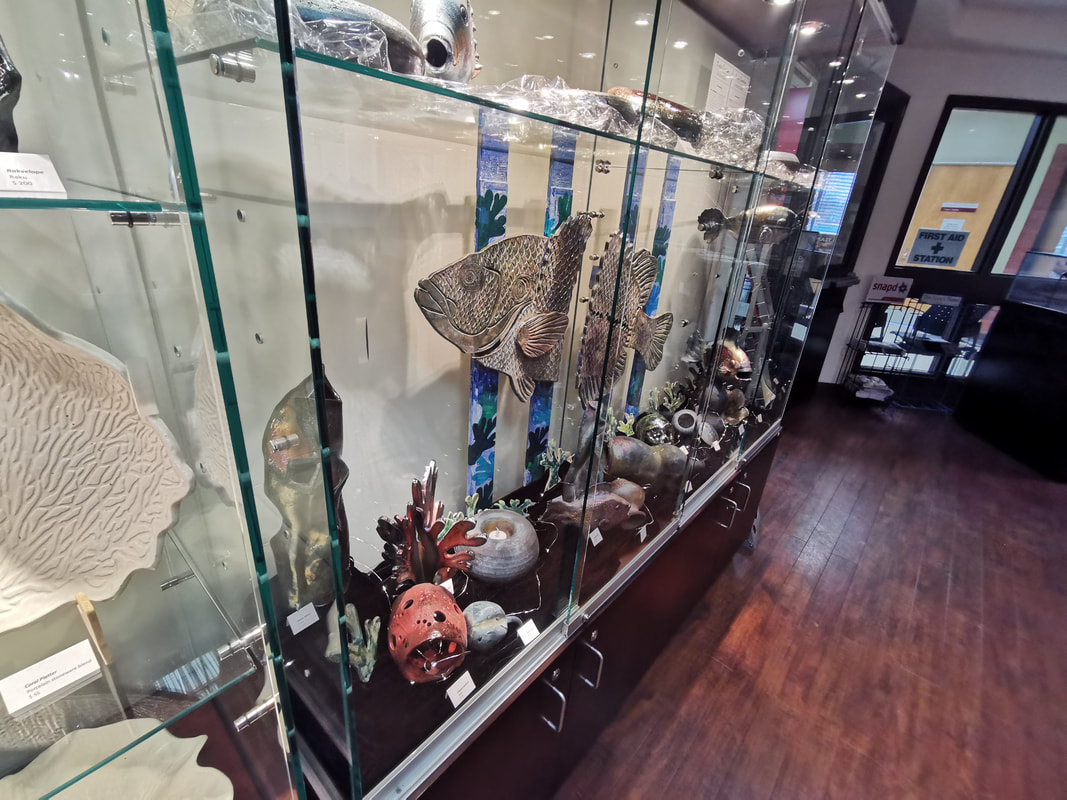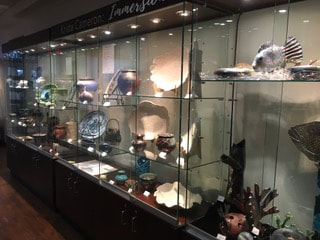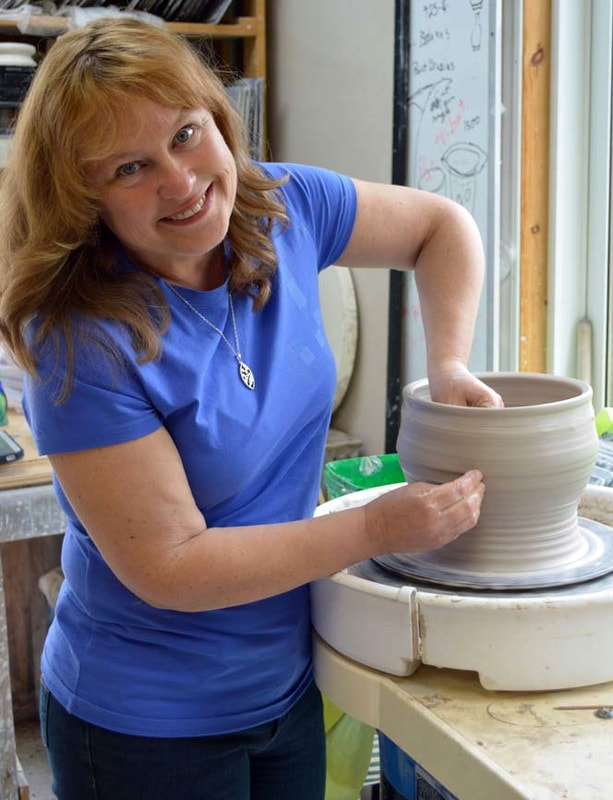|
If you're signed up to my newsletter then you know I had my first solo show this month.
Because we're all staying indoors a little more, I decided that bringing the show online was the best way to brighten your days and bring a little more art into your sight! The Immersion show came to life after I spent time thinking about my childhood, my continued love of water and my fascination with nature. Today, I wanted to tell you a little more about the process of raku. I mention raku a lot but I wanted to take the time to tell you more about this traditional Japanese process of pottery. This type of pottery is fired at a low temperature, which can be hard to attain in a more modern kiln. To keep things consistent, I build a temporary kiln and use propane to run it. The temperatures are still scorching but comparatively lower than your everyday firings. The pieces are fired until they're glowing red (the benefits of a temporary kiln is that I can take a peek to see how things are going). Then, they're placed into a container full of combustible materials (think straw, pine needles, hay etc.), which ignite from the intense heat of the items. The containers are quickly sealed, producing an atmospheric effect, which alters the colours in the glazes and clay. Raku glazes are metallic and shiny, which is exciting and so different from the subdued colours of other firing methods. But I don't just enjoy raku for that reason alone; it's a break from the regular pottery process, which allows me to get outdoors and fire in nature. It's also incredibly fun watching pine needles alight because of a burning hot pot! I also love that each raku piece is one of a kind. The colour effects cannot be replicated because the combustible materials will never be positioned in the exact same position and the oxygen exposure will never be exactly the same. While they are beautiful pieces, I do want to note that raku only makes decorative items - it doesn't produce food safe functional pieces. |
Krista CameronOffering pottery classes to adults and kids in Athens, Brockville, and Kingston, ON. Archives
July 2024
Categories
All
|



 RSS Feed
RSS Feed
